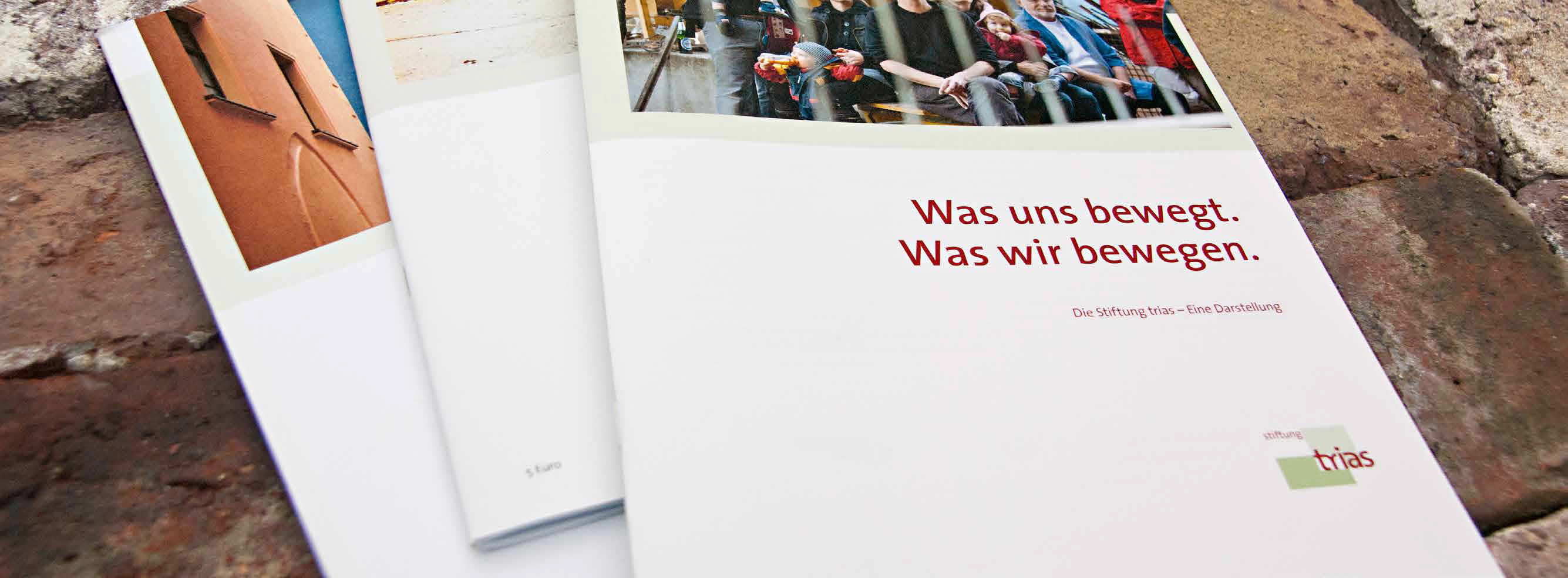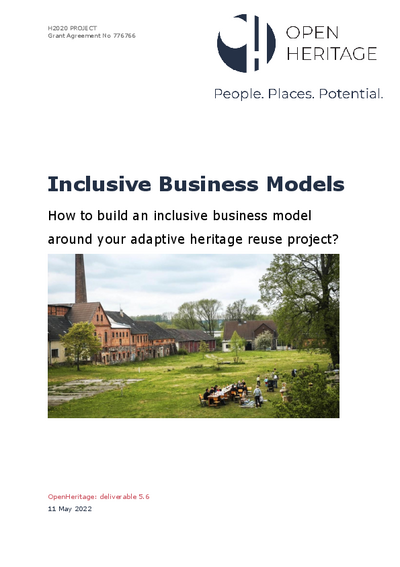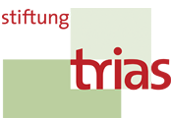Publikationen
Broschüren :: Bücher :: Stiftungsinformationen

Wissenswert – erfahrbar: Broschüren der Stiftung trias
Zu den Publikationen
Alle Preise verstehen sich inklusive Versandpauschale und gesetzlicher Mehrwertsteuer.
Bitte beachten Sie unsere Hinweise:
Wenn Sie aus dem Ausland bestellen möchten, bitten wir um Kontaktaufnahme per E-Mail.
Die Bezahlart Rechnung ist leider nur Kommunen und Universitäten vorbehalten. Für alle anderen stehen unsere Bezahlmöglichkeiten PayPal und Vorkasse zur Verfügung. Vielen Dank.
Haben Sie Interesse, regelmäßig von der Stiftung zu lesen? Die Stiftung trias informiert ca. sechs mal im Jahr mit ihrem Online-Rundbrief über Neuigkeiten aus der Stiftung. Aktuelle Infos zu Publikationen finden Sie zudem in unserem Blog >>

- Inclusive Business Models
-
How to build an inclusive business model around your adaptive heritage reuse project?
This document is a deliverable of the OpenHeritage project, funded under the EU’s Horizon 2020 research and innovation programme (grant agreement 776766). OpenHeritage aims to identify and test the best practices of adaptive heritage re-use in Europe. In OpenHeritage, the scope is on an ‘inclusive’ way of adaptive heritage reuse (AHR) opposite to a more ‘classical’ way. The ‘classical’ way can be characterised as a rather linear process where the owner or the developer of an heritage asset are the sole responsible commissioners and main beneficiaries of the adaptive reuse. The largest part of contemporary heritage policies and support frameworks are still delineated around the classical concept of adaptive reuse since single ownership, financing and commissioning is easier to regulate and stimulate.
In the ‘inclusive’ way of adaptive reuse, individuals and communities are an active part of the transformation process. Groups act as initiators, commissioners, owners and beneficiaries of adaptive heritage reuse projects. Developing an inclusive adaptive reuse project is more complex due to the number of stakeholders in a project and different interests. The business model of an inclusive process looks different from a classical reuse business model.In OpenHeritage the inclusive approach to adaptive reuse was researched, analysed and tested in several project over Europe. During the period 2018-2022 six heritage labs were supported and critically analysed in their efforts to make adaptive reuse process more inclusive. During this process they were guided on financial issues by the financial taskforce that consisted of Joep de Roo (Eurodite) and Rolf Novy-Huy (Stiftung trias). Both are active in management and financing of transition and community projects. This publication reflects the experiences, findings and ideas that came out of the process and is meant for practitioners, often non-professionals, involved in a process of revitalising an asset with heritage value. The second group for whom this publication could be interesting are local authorities. They play an essential role in AHR processes. The book may also be of interest to professional private and public organisations that are looking for ways to finance or make projects and policies more inclusive by involving the civil society and local communities not only as users but also as commissioners and co-owners.
2022
48 Seiten, zahlr. farb. Abb. / 48 pages, numerous coloured illustrations
Englisch / English!KEINE GEDRUCKTEN EXEMPLARE, BITTE NUTZEN SIE DEN DOWNLOAD!
!NO PRINTED COPIES, PLEASE USE THE DOWNLOAD!
0,00 € inkl. Versand und gesetzlicher Mehrwertsteuer
- Download Broschüre als PDF
